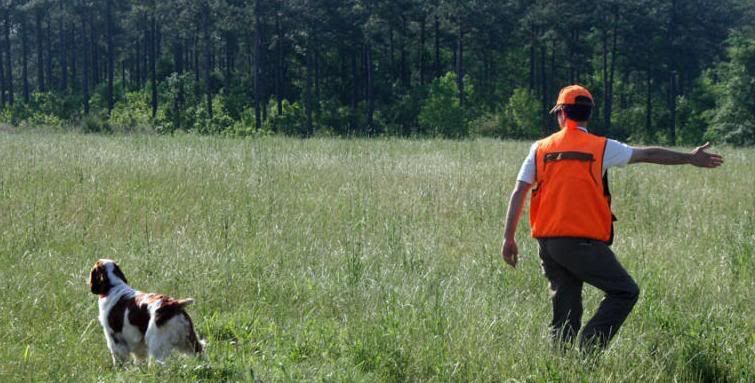- Know where you are with your training. Don't expect more or less from the dog than you get in practice.
- Don't loom over your dog. It makes him nervous. Move back.
- If puppy's attention is wandering, shuffle a few more steps back. That will get his attention.
- Control the dog from the first moment. Give puppy every opportunity to use the grounds to his advantage.
- Be patient when you let the dog go. Let the dog find himself. It's not unusual for a dog to take a big bite on the first cast. Don't freak. Help him in. All the same, it would be nice to have that first, downwind cast be pretty flat along the line.
- Calm down. Avoid nervous tones in your voice. Cut the chatter and unnecessary commands. Don't play a tune on your whistle.
- If possible, stop the dog at least once as he passes in front of you. Maybe after the 2nd pass. This maintains a sense of control and purpose.
- Be a teammate. Hunt with your dog. Be involved in the hunt. Don't just be an idle observer.
- Trust your dog. If you see a bird, guide the dog to it, but don't overdo. First of all, some judges don't like it, and second, if the dog is off somewhere else, maybe he has a bead on something, too. Finally, if you are calling him over and he isn't interested, your grade goes down.
- Study and understand your dog's posture when he finds game ("gets birdy"). But don't just stand there or freeze. Get as close as you can without interfering.
- Move to the dog when he is getting birdy and making game. Don't freeze in place. You'd hustle up to the dog if you were rough hunting, right? You may want to tell the judge what you are doing.
- When the bird is in the air STOP moving.
Trust your dog.
"Who do you believe, me or that big nose of yours?"
Tomorrow: What to do when the game is down.



No comments:
Post a Comment